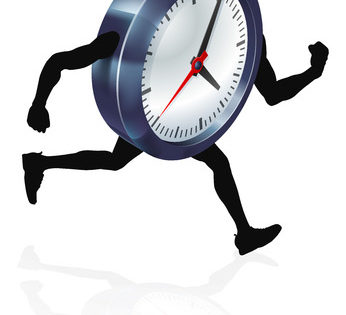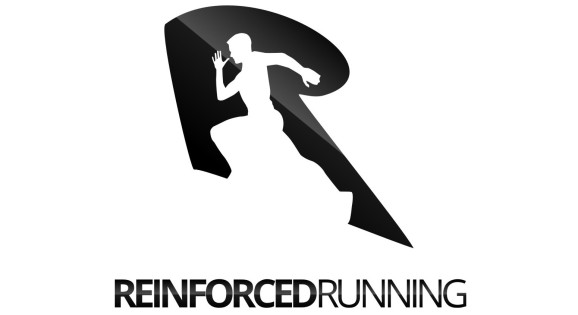How to Calculate your Macros to improve your Spartan Race Training with the help of nutrition.
In this video, you will learn exactly how to calculate your own personal nutrition for spartan race training. Nutrition and fueling are often overlooked but are critical complements to improving your results.
https://www.youtube.com/watch?v=D2exiJuCVWM&t=39s
Get a free copy of Macros for Endurance training Calculator here
Learn more about one on one coaching here.
[00:00:15] So here’s the deal. Before you go out and buy any, any product that’s out there that’s in some sort of tug, you need to maximize what you have available to you and the food that you’re eating. Is right here. You do it every day. You do it for every single meal. So you need to make sure that you’re matching your output for what you’re doing for obstacle course racing, with the input of food that you are digesting and putting into your system. nutrition for spartan race training
[00:00:38] So I’m going to show you exactly how you can calculate your exact nutrient needs. For OCR to maximize your performance, to improve your recovery, and it makes sure you’re doing everything you can to live. When you get to that starting line, you have the confidence that you’ll be fueled and ready to go.nutrition for spartan race training
[00:00:54] But before I show you that, I’d love if you give me a thumbs up, hit subscribe so you can get all the latest. All right, cool. Here we go. So here is the example of the nutrient calculator that I use to help the clients that I coach, and that also used for myself. So endurance athletes and obstacle course racers in particular have their own nutritional needs. nutrition for spartan race training
[00:01:16] And a lot of these calculators that you’ll find online that give you promises of finding your base metabolic rate and your total daily energy expenditure. They don’t take into consideration the amount of a strenuous activity that an obstacle course racer or an endurance athlete is going to do. And that’s what makes it really important that you are finding something that is specific for the endurance athlete. nutrition for spartan race training
[00:01:34] And I’ve had a hard time finding that, so I just made one on my own. And you can get a copy of this and the link in the show notes. And have it delivered directly to your email. So hit that so you can get this all sent to so you can have it and put it directly into your training. So with that, let me show you exactly how to use this and why you need to focus on specific macronutrients and what they are going to do for your performance and for your overall health. nutrition for spartan race training
[00:01:58] So let’s go ahead and add in all this information about, uh, as an athlete here. So for me, 34, uh, about 72 inches. Tall about one 64 this morning. Uh, gender obvious. So work activity. It’s important to note what the differences would be in this. So for me, where I used to be in person training at the gym, seeing people teach your classes, I was moving quite a bit.nutrition for spartan race training

[00:02:20] That would change my activity level from active to very active. So now we’re, I’m a more inside, I’m more of a computer. I make an effort to get up and move around. Um, so it’s gone to, to moderate active. And this is important because the amount of time and the amount of energy that’s spent is, is more than the hour to two to three hours a day. nutrition for spartan race training
[00:02:39] If you’re a beast of training that you’re doing. So you need to make sure that you account for the work that you’re doing at work. So making sure that you’re, you’re, you’re accounting for those calories that you’re spending is really important. So even if this is, if you’re not very active at work but at home, or you make a point to get out and move around a lot and walk quite a bit if you walk to work or things like that, that would fall into this equation as well. nutrition for spartan race training
[00:03:02] Um, body type would be hard gainer if you don’t gain weight easily, easy gain, or if you do gain weight easily. And mesomorph is both. So if you, if you ha, if you know that you can put on muscle or lose weight based on the nutrition that you’re taking in, that would be that, that piece, their goal here is to improve performance meals a day. nutrition for spartan race training
[00:03:21] For me, it’s usually about six. And when you’re going to be working out, and this is just a matter of mealtime in which we can cover in a different video, but it just gives you some recommendations for what you would like. And again, you can get this calculator for yourself. And the link in the show notes.
[00:03:35] So it’s drop your information in that will get sent directly to your email. And so say I’m working out right around lunch hours, which is typical. So here we go. Has everything set for me. So right now, if I’m not doing anything all day, and in terms of. The miles that have run the how many miles I’d liked or the amount of strength I’ve done. nutrition for spartan race training
[00:03:55] These would be my total calories just to maintain and improve performance. So let’s say it’s a moderate run day for me. It would be about seven miles or so, and then maybe an hour of strength training. So right away you’re going to see how everything does change based upon the activity. So you see right over here, so 164 grams of protein.
[00:04:11] 432 grams of carbohydrates and 82 grams of fat, which can be about 31 calories, 3,100 calories for that day. And that’s to match my output with the input. So if I was doing a seven mile run with an hour of strength training, 3,100 calories is going to give me enough to refuel so that I’m able to continue to build muscle. nutrition for spartan race training
[00:04:30] And to. Reese fueled those glycogen stores that I must, that I’ve had what I’ve spent during the running so they can bounce back better for the next time that I’m ready to go out and hit hard. So each one is different. Macronutrients for the obstacle course racer is going to be crucial. And here’s why. nutrition for spartan race training
[00:04:48] So with protein, protein is what’s going to help rebuild your muscle. And the thing with obstacle course racing is that we want to improve our endurance performance while maintaining. Some of our strengths. That’s where protein becomes very crucial. So you see it running and endurance activities are very catabolic, so puts you in a state where you’re trying to strip and lose whatever access you have on you.
[00:05:11] So a lot of times you will, I mean, you’ll see the top runners, they’re very skinny, they’re very lean because they’ve trained their body to use this, and they’ve gotten rid of everything that they don’t need so that they can improve on their performance for endurance and speed for Australia, there’s a bit of a take.
[00:05:27] I’ll give and take here because we want to make sure that we are strong enough to do the carries. We are strong enough to do the, to pull ourselves over a wall. We’re strong enough to do all these things, so we can’t just go on dirt. So we need to keep, make sure that our protein is on point so that we don’t.
[00:05:42] Literally lose and strip away all of that. So you need to aim for about one gram per pound of body weight here. And for an obstacle course race at that, you can actually go higher than that. So I’ll go one gram to 1.2 grams, which would put me at right around 180 or so grams per day. So even overfeeding the protein is a fine idea when it comes to your.
[00:06:06] Macronutrient targets and protein is not an energy source, so it doesn’t store. It gets stripped down in a whole process. And there’s nitrogen pools that recycle and go through to make sure that you are continuing to have healthy muscle tissue, but it’s not going to be something that is going to fuel your performance in any way.
[00:06:21] But it is important to have just to maintain that muscle mass. And that’s why it’s crucial for an obstacle course racer to hit their protein numbers. Your carbon numbers. I’m going to be your main fuel source, and carbohydrates are going to store it in your muscles so that when you are doing endurance performance, you are, you do have that energy source there.
[00:06:39] It is the fastest energy source that the human body has, and also it elicits some, it elicits a hormone response that helps shuttle the immuno acids that come from the protein back into those muscles. So having those carrier agents that get released from your. From eating carbohydrates is crucial when it comes to continuing to put on or maintain your muscle mass.
[00:07:02] So if you’re eating protein in without a, uh, without any carbohydrates, or if you’re in a massive caloric deficit, you’re probably not going to keep that muscle anyway. So it’s really important that you keep your calories in point on point and they’re eating carbohydrates with the protein that you’re taking in.
[00:07:18] And if we look over here into the. Uh, the timing of things. You’ll see that’s why the carbohydrates are higher pre and post, so they can shuttle that protein into your muscle storage easier. So carbohydrates are going to be really important for the endurance athlete and the obstacle course Reese athlete to take in.
[00:07:39] One of the issues that will pop up is how to determine how much activity you have done. And a lot of times we’re going off of time-based, so if we’re doing 50 minutes and every five minutes we’re doing 30 burpees or something, we’re not going to get as many miles. We’re going to still get a lot of time, a mass on feet, and a lot of time and activity.
[00:07:59] So take whatever you have in your base mileage and just convert that to time. So if you were doing an hour run and you run 10 minute miles, typically. That will be a six mile run. And if you were doing an hour run with those burpees, if you’re, and you only get to four miles, still consider that a six mile run to change it to, to plug it into this calculator because you’re still doing that much work. macros for spartan race
[00:08:24] And then on, on the strength training is the same thing. So if you’re doing strength training and that’s straight sets and reps. So if you’re going and you’re doing five by five dead lift with two minutes rest in between. That, and then you’re doing pull ups and then pressing and you’re resting in between, and it’s strength training for power and for hypertrophy.
[00:08:44] Then you want to lean into the strength training hours. But if you’re doing high intensity work, so say you’re doing. 20 minute AMRAP with air squats and pull ups and burpees that would come, that would fall more in line with cardio and that would be more in those running miles. So that’s going to be the difference here and how you’re going to figure out your training.
[00:09:02] So say you do 30 minutes of, um, deadlifts and presses and that you’re doing another 20 minutes of. Of high intensity work that would equate to about two miles of running, because we’re using that example of 10 minute per mile. So that would change the day to nine miles at and, uh, 0.5 of just shrink training. macros for spartan race
[00:09:28] Again, if we are doing that. High intensity interval training that is still going to be in that catabolic range. Even though you’re using weights, it’s not meant to get you stronger. It is still more of a cardio activity and for obstacle course racing, this is D this is a heavy part of a lot of our training is doing that high intensity work in the gym or just picking up a sandbag and doing squats and presses and running with itself. macros for spartan race
[00:09:49] Going off time and converting that into your miles is going to be important when it comes to figuring out how much work you are doing. Within the scope of your training. So make sure that you are taking that time to analyze how much you’re doing and not just going off of what your watch says and how many miles you’ve done.
[00:10:03] Because if you’re doing that, you’ll undershoot the amount of work that you’re doing. So again, it’s critical that you match the amount of. Food that you’re eating with how much you’re putting out. So it’s important to know how much of that translates in this exact equation. And then on the end of fats that this is going to be really helpful to get your hormone function and to make sure that everything is working properly on your day to day. macros for spartan race
[00:10:29] And this can also be very helpful if you’re doing a lot of low end work. So if you’re just spending. That hour doing just slow, easy mileage making, there is a chance that you’re using fat as fuel quite a bit, and that’s kind of the goal anyway, especially on those long runs. So dosing with fats and making sure that these stay up and higher is going to be critically important. macros for spartan race
[00:10:47] And the main thing that is worth noting here when it comes to carbs and fats is that they’re important too. Give you energy, but they’re also really easy to overeat, and if you don’t have these targets, a lot of times I’ve found with endurance athletes, they’re really hungry, so they’ll just eat too many carbs and fats and not enough protein because the carbs and fats are easier to eat. macros for spartan race
[00:11:06] Carbs would be things like breads and and, and bagels and fruits and things of that nature. And where fats are going to be more in line with oils and cheeses and nuts and nut butters. And so it’s really easy for endurance athletes to kinda overdo on both of these. So having these targets is really important.macros for spartan race
[00:11:26] So you are matching without going over the top. And again, hitting those protein numbers will make you feel much more full and will make it much easier for you to not overeat. So that’s why the protein is really important. And then having these carbohydrate and fat numbers targeted so you don’t overdo it.mnutrition for spartan race training acros for spartan race
[00:11:42] Well, in a heavy. Bulk base period of training or any big post race or huge endurance bout. So I hope this all makes sense. Again, you can grab a free copy of this calculator for your own personal use to put into your own training with the link in the show notes. Again, hit me with a thumbs up if you liked the video, if you thought this was helpful, drop a comment if there’s anything that you need clarification on and hit, subscribe to that little bell. manutrition for spartan race training cros for spartan race
[00:12:09] Next, grab the all the latest. And we will talk to you next time. nutrition for spartan race training
Resources


